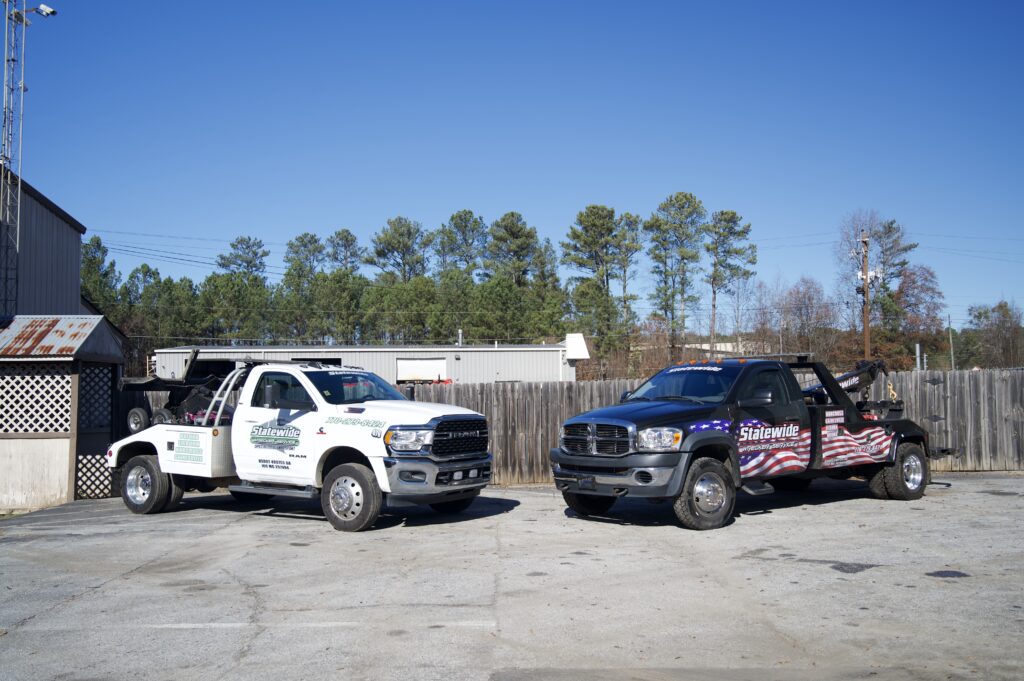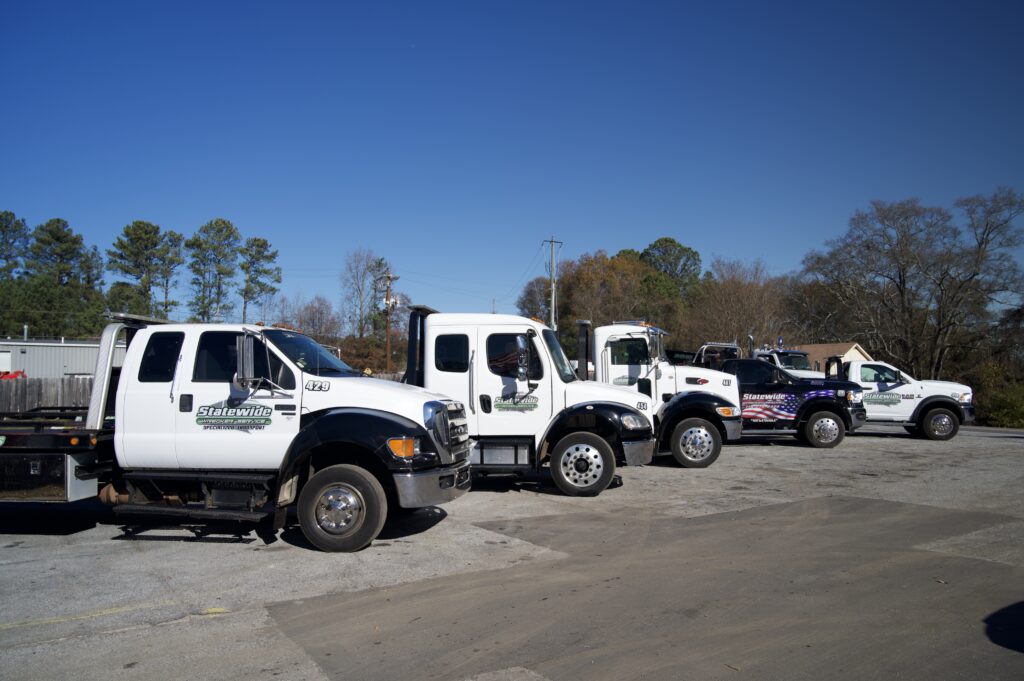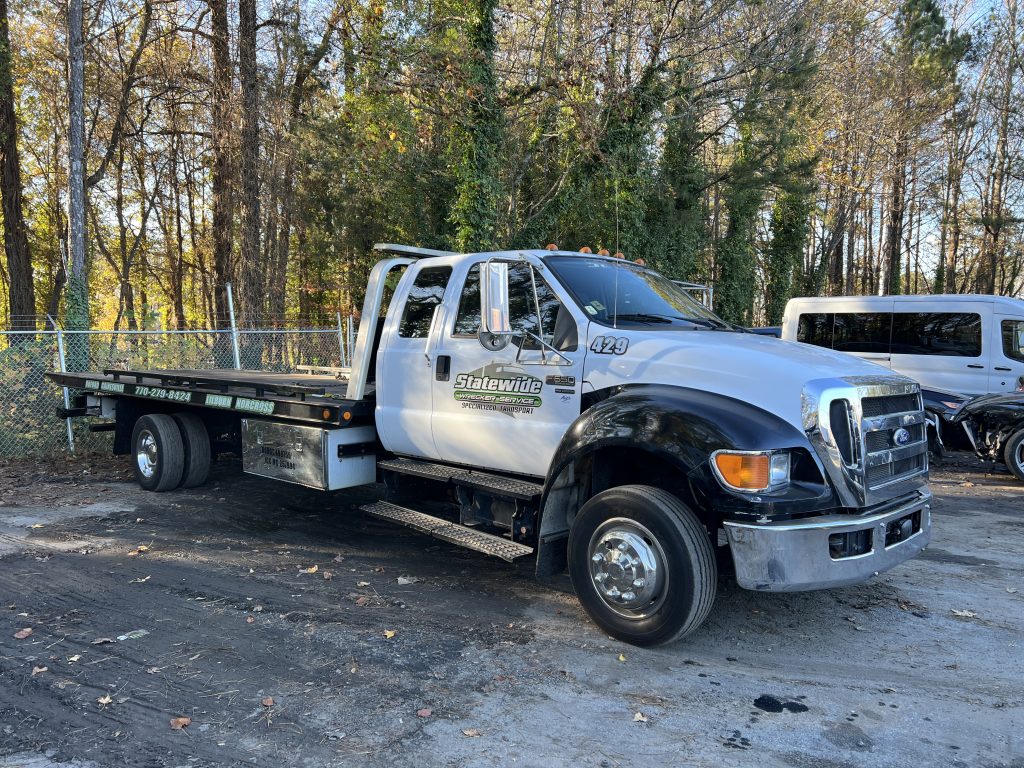Car accidents are inevitable, especially in busy cities like Gwinnett. The aftermath of a collision can be overwhelming, but knowing the correct steps to take can make a significant difference. Whether you’re involved in a minor fender bender or a more serious accident that requires a tow truck, following the proper protocols can be helpful. Here, Statewide Wrecker Service outlines the dos and don’ts of handling a car accident in Gwinnett, with a special focus on the importance of securing a reliable towing service.

The Dos
Stay Calm & Assess The Situation
Immediately after an accident, your adrenaline may be extremely high, making it difficult to think clearly. The first and most important step is to remain calm. Take a deep breath and assess the situation. Check yourself and any passengers for injuries. If anyone is seriously injured, call 911 immediately for medical assistance. Staying calm will help you make rational decisions and ensure that you handle the situation effectively.
Move To A Safe Location
Please refer to state law § 40-6-275 for roadway accidents and vehicle removal. If the accident is minor and your vehicle is drivable, slowly and carefully move it to the side of the road or a safe location. Gwinnett’s busy streets can be dangerous, and leaving your car in the middle of the road increases the risk of a secondary accident. Turn on your hazard lights to alert other drivers. If the vehicle cannot be moved, stay inside with your seatbelt on until help arrives.
Call The Police
In the state of Georgia, it’s essential to report any car accident to the police, regardless of the accident. Police officers will document the incident and create an official report, which can be important for insurance claims. Provide the police with detailed information about the accident. Remember, the police report will serve as an official record of the event, so ensure that all facts are clearly and correctly presented.
Take Pictures
It is very crucial to document the scene of the accident. Use your camera to take photos of the damage to all vehicles involved, the position of the cars, and any relevant road conditions or signs. Also, capture any visible injuries and the surrounding environment. This documentation can serve as valuable evidence when filing an insurance claim or dealing with any legal matters that may arise later.
Exchange Information
Exchange contact and insurance information with the other driver(s) involved in the accident. Be sure to get their full name, phone number, address, driver’s license number, license plate number, and insurance policy details. If there are any witnesses to the accident, politely ask for their contact information as well. Witness statements can be helpful if there’s a dispute about the cause of the accident.
Notify Your Insurance Company
Contact your insurance company as soon as possible to report the accident. Provide them with all the necessary details, including the police report number, photos, and any other relevant information. Promptly reporting the accident can help expedite the claims process and ensure that you receive the coverage you’re entitled to.
Call Statewide Wrecker Service
If your vehicle is not drivable, you’ll need to arrange for a tow. Searching for a “towing service near me” can quickly connect you with a reliable company like Statewide Wrecker Service, which offers prompt and professional assistance. It’s crucial to choose a company that is reputable and has a good track record to avoid any further complications.
In addition to towing, you may need other forms of roadside assistance such as tire changes, jump-starts, or fuel delivery. Statewide Wrecker Service, offers comprehensive roadside assistance to help you get back on the road as quickly as possible. Having a roadside assistance plan can be a lifesaver during such stressful times.

The Don’ts
Don’t Leave The Scene
Leaving the scene of an accident, especially before exchanging information or contacting the police, is not only unethical but also illegal. In Georgia, hit-and-run incidents can result in severe penalties, including fines and imprisonment. Always stay at the scene until all necessary steps have been completed, and the authorities give you permission to leave.
Don’t Neglect Medical Attention
Some injuries, such as whiplash or internal injuries, may not be immediately apparent after an accident. It’s important to seek medical attention even if you feel fine. A doctor can assess you for any injuries that may not be visible and provide a medical report that could be important for insurance claims or legal action. Delaying medical care can worsen injuries and complicate your recovery.
Avoid Confrontation
Tensions can run high after an accident, but it’s important to remain calm and avoid getting into arguments with the other driver(s). Heated exchanges can escalate the situation and make it harder to resolve. Instead, focus on exchanging information and documenting the scene. If the other party becomes aggressive, it’s best to wait for the police to arrive and handle the situation.
Don’t Overlook The Importance Of A Towing Service
Not all towing companies are created equal. Avoid choosing a towing service based solely on proximity or price. An unreliable company could mishandle your vehicle or charge exorbitant fees. Instead, take the time to find a trusted “towing service near me,” like Statewide Wrecker Service, which is known for our professionalism and prompt response times.
Don’t Wait To Report The Accident
Waiting too long to report the accident to your insurance company can lead to complications and delays in your claim. It’s essential to contact them as soon as possible, providing all the necessary information and documentation. Prompt reporting can help ensure a smoother claims process and faster resolution.
Need a Tow? Call Us Today!
Being involved in a car accident can be a stressful and disorienting experience, but knowing the dos and don’ts can help you navigate the situation with confidence. Always prioritize safety, document the incident thoroughly, and contact Statewide Wrecker Service for towing and roadside assistance. By following these guidelines, you can protect your rights, ensure your safety, and get back on the road as quickly as possible.
